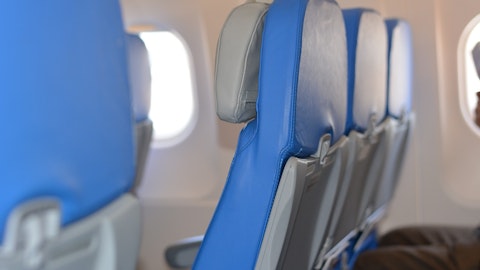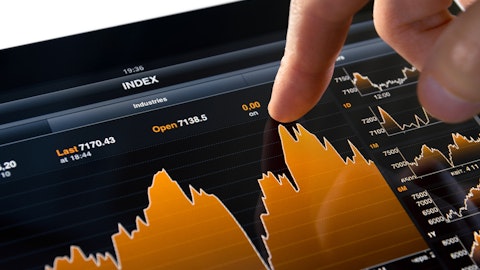Is the era of the most successful LBOs and private equity buyouts in history long gone, or is there any indication that in the future, we’ll see more of the massive deals that took place just before the sky fell in 2008?
The 1980s saw the beginning of the first private equity boom, which culminated in RJR Nabisco’s acquisition. That period also witnessed the rise of notorious corporate raiders like Carl Icahn, T. Boone Pickens, Kirk Kerkorian and many others. Their hostile takeovers and subsequent asset stripping of companies like TWA earned them the reputation of being ruthless men who didn’t care about anything but the bottom-line.
The practice of greenmail (essentially a form of financial blackmail) didn’t do much to improve their reputations either. Investors would acquire a significant number of shares in a company in an effort to exert control over its direction, often forcing companies to buy back the shares at inflated prices to ward them off. The tactic wasn’t new; in fact, it was invented by the Romans, who used it to try to pay off barbarians and stop them from sacking Rome. In retrospect, it didn’t work quite as intended.
Considering that, it isn’t hard to see why corporate raiders sought to rebrand themselves as ‘activist shareholders’, many of whom are now considered among the 10 Most Successful Investors in the World Today.

CHAILUK CHALATHAI/Shutterstock.com
The reputation of leveraged buyouts (LBOs) and private equity buyouts started to improve in the 1990s. Investors started seeking agreements with companies’ existing board of directors instead of pushing for hostile takeovers. One of the reasons behind this change was the advent of corporate measures to defend against activists, such as the poison pill, a mechanism developed to deter hostile acquisitions. Poison pills generally allow shareholders to buy additional shares of the company at a discount either before or after the merger, making the terms less desirable for any acquiring entity. The deal that was largely responsible for the growth of the practice was Thomas H. Lee Partners’ acquisition of Snapple Beverages, one of the most successful LBOs and private equity buyouts in history (see more below).
With the NASDAQ crash in 2000, buyouts came to a screeching halt. It took three years for investors to start buying again and in 2003 we entered what is commonly referred as the Golden Age of Private Equity. Mega-buyouts in this period saw enormous sums of money changing hands and multi-billion-dollar LBOs were almost daily news. The mind-boggling numbers involved in these transactions illustrated the spending spree investors were on, although none surpassed the legendary RJR Nabisco deal from 1989. Then, 2008 rolled around and it all came tumbling down and nothing was ever the same. However, deals like the Dell buyout in 2013 may very well be a sign that private equity LBOs are making a comeback.
We used several sources in order to determine the 10 most successful LBOs and private equity buyouts in history. Our starting point were lists of the largest buyouts in history, found on Business Insider and Investopedia. From there, we went through every deal in order to determine whether it was a success or a bust. We also found several examples of great LBOs on Forbes. Since it is nigh impossible to calculate the exact profits investors made from these buyouts, we sorted them according to the initial value of the investment. While percentage-wise some are more profitable than others, in terms of total money earned we felt that these offer a fair representation of the most successful LBOs and buyouts ever made. Now, let’s check out the list of most successful LBOs and private equity buyouts in history.
10. Continental Airlines
Year: 1993
Nominal value: $66 million
Value in 2017 dollars: $113.27 million
Buyer: Texas Pacific Group (TPG Capital)
In sharp contrast to Carl Icahn’s takeover of TWA, which ended in the company being stripped of its most valuable assets and ultimately led to its bankruptcy (while significantly enriching Mr. Icahn), newly formed Texas Pacific Group took the other way in their 1993 buyout of Continental Airlines. By taking a direct, hands-on approach in the daily operations of the company, they managed to turn their initial $66 million investment into a handy $600 million profit. Their handling of the Continental buyout set up a new norm for the subsequent LBO and private equity takeovers that followed in the coming years. Continental is now part of United Continental Holdings Inc (NYSE:UAL).

Dabarti CGI/Shutterstock.com
Follow United Airlines Holdings Inc. (NASDAQ:UAL)
Follow United Airlines Holdings Inc. (NASDAQ:UAL)
Receive real-time insider trading and news alerts
9. Snapple Beverages
Year: 1992
Nominal value: $135 million
Value in 2017 dollars: $239 million
Buyer: Thomas H. Lee Partners
Snapple Beverages, the next one on the list of most successful LBOs and private equity buyouts in history is one of the most-cited buyout stories in history. Thomas H. Lee Partners managed to pull off every activist investor’s dream by buying Snapple Beverages for a mere $135 million, mixing it up a little (and taking it public in the process) and selling it for whopping $1.7 billion just three years later. It is estimated that the deal earned the firm about $900 million in profit; not bad for a three-year deal. Quaker Oats, the company that took Snapple off of Thomas H. Lee Partners’ hands, wasn’t nearly as lucky, as the company didn’t do well under its leadership. Quaker Oats ended up selling Snapple for just $300 million three years later. Snapple has changed hands two more times since and is currently part of Dr Pepper Snapple Group Inc. (NYSE:DPS).

Jonathan Weiss/Shutterstock.com
Follow Keurig Dr Pepper Inc. (NASDAQ:KDP)
Follow Keurig Dr Pepper Inc. (NASDAQ:KDP)
Receive real-time insider trading and news alerts
8. Gulfstream Aerospace
Year: 1990
Nominal value: $850 million
Value in 2017 dollars: $1.63 billion
Buyer: Forstmann Little
In 1990, Gulfstream was struggling. Its owner Chrysler decided to put it up for sale and Forstmann Little, in partnership with Gulfstream CEO Allan Paulson, decided to step in. They acquired the company for $850 million, most of which was borrowed. In the following years, Gulfstream focused on developing the Gulfstream V and G550, which proved to be one of the most successful business jet models of all time. IT cemented the company as the undisputed leader in the long-range business jet market, with some 60% market share. Forstmann Little sold Gulfstream to General Dynamics Corporation (NYSE:GD) in 1999 for $4.6 billion, making a tidy profit on its investment. General Dynamics Corporation (NYSE:GD) remains Gulfstream Aerospace’s parent company to this day.

Pixabay/Public Domain
Follow General Dynamics Corp (NYSE:GD)
Follow General Dynamics Corp (NYSE:GD)
Receive real-time insider trading and news alerts
7. Dell
Year: 2013
Nominal value: $25 billion
Value in 2017 dollars: $26.57 billion
Buyer: Michael Dell and Silver Lake Partners
Dell that ranks 7th on the list of most successful LBOs and private equity buyouts in history was the subject of the largest leveraged buyout with private equity post-2007 and the Golden Age. After almost a decade of declining sales and losing market share to the rising Asian PC manufacturers, Dell was in dire need of fresh blood. Michael Dell teamed with Silver Lake Partners to take the company he founded private in 2013. Immediately, results improved and while neither partner has exited the deal yet, there are strong indications that it will be a highly profitable one. Since the LBO, Dell bought EMC for $67 billion, the largest tech acquisition in history.
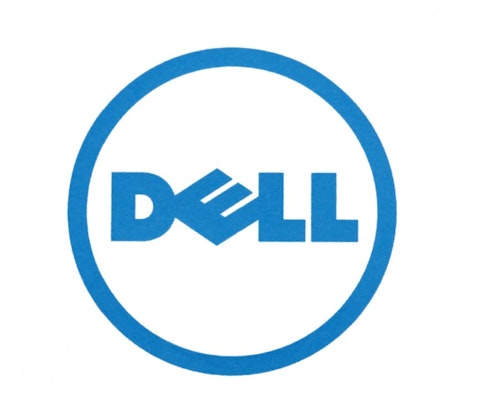
Rose Carson/Shutterstock.com
6. Kinder Morgan Inc (NYSE:KMI)
Year: 2006
Nominal value: $21.60 billion
Value in 2017 dollars: $26.66 billion
Buyer: The Carlyle Group, Highstar Capital, Riverstone Holdings, and Goldman Sachs Private Equity
With almost 70,000 miles of pipeline under its hat, Kinder Morgan is the number 6 on our list of most successful LBOs and private equity buyouts in history and the largest energy infrastructure company in North America. About 38% of America’s natural gas goes through its pipes in order to reach consumers. The huge group behind its LBO bet that the company had a great future and they were right. The group made $2.9 billion on Kinder Morgan Inc (NYSE:KMI)’s IPO in 2011 and though shares are down by 38% since that IPO, the company is still valued at $43 billion, nearly double what the group paid for it in 2006.

QiuJu Song/Shutterstock.com
Follow Kinder Morgan Inc. (NYSE:KMI)
Follow Kinder Morgan Inc. (NYSE:KMI)
Receive real-time insider trading and news alerts
5. Alliance Boots
Year: 2007
Nominal value: $24.80 billion
Value in 2017 dollars: $29.98 billion
Buyer: KKR
The buyout of Alliance Boots didn’t go smoothly for the buyers. A bidding war between Stefano Pessina and his KKR backers on one side and Terra Firma Capital Partners and Wellcome Trust on the other ended up with KKR shelling out 40% more money than they initially offered. In the end, it didn’t matter, as KKR quadrupled its money, with Alliance Boots proving to be one of the 10 most successful LBOs and private equity buyouts in history. Alliance Boots merged with Walgreens at the end of 2014 to become Walgreens Boots Alliance Inc (NASDAQ:WBA).

bogdanhoda/Shutterstock.com
Follow Walgreens Boots Alliance Inc. (NASDAQ:WBA)
Follow Walgreens Boots Alliance Inc. (NASDAQ:WBA)
Receive real-time insider trading and news alerts
4. Hilton Hotels
Year: 2007
Nominal value: $26 billion
Value in 2017 dollars: $31.44 billion
Buyer: Blackstone Group LP (NYSE:BX)
In a deal that took a year to negotiate, Steve Schwarzman ended up paying a 25% premium on Hilton’s shares (or 32% more than their value on the day before the deal was closed). In return, his fund became the largest hotel owner on the planet. It was one of the last big deals before the crash and a high-water mark of the Golden Age. For a while, it seemed that Schwarzman bet badly and that the Hilton Worldwide Holdings Inc. (NYSE:HLT) deal would be Blackstone Group LP (NYSE:BX)’s doom, but as it turned out, the firm stands to make quite a bit of money on its investment. Now, let’s see the top three on our list of most successful LBOs and private equity buyouts in history.
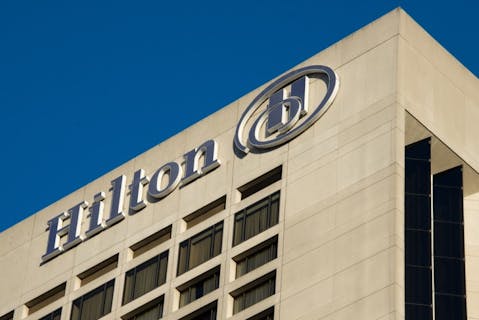
DayOwl/Shutterstock.com
Follow Hilton Worldwide Holdings Inc. (NYSE:HLT)
Follow Hilton Worldwide Holdings Inc. (NYSE:HLT)
Receive real-time insider trading and news alerts
3. Alltel
Year: 2007
Nominal value: $27 billion
Value in 2017 dollars: $32.64 billion
Buyer: TPG Capital and Goldman Sachs Private Equity
The Alltel LBO represents a sound example of a successful buyout. The company was bought in 2007, dusted up and sold to Verizon Communications Inc. (NYSE:VZ) for more than $1 billion profit less than a year later, making Verizon Communications Inc. (NYSE:VZ) the largest mobile provider in the U.S.

Copyright: bluebay / 123RF Stock Photo
Follow Verizon Communications Inc (NYSE:VZ)
Follow Verizon Communications Inc (NYSE:VZ)
Receive real-time insider trading and news alerts
2. Hospital Corporation of America
Year: 2006
Nominal value: $32.70 billion
Value in 2017 dollars: $40.36 billion
Buyer: Bain Capital, KKR & Merrill Lynch
When Bain, KKR, and Merrill Lynch partnered up to buy Hospital Corporation of America, the number 2 on our list of most successful LBOs and private equity buyouts in history in 2006, there were plenty of those who were skeptical about the profitability of the move. However, HCA’s profits in the post-LBO period have proved them wrong. In fact, in 2012, the partners stood to gain 3-and-a-half-times their investment, based on the stock price at the time. The deal was so successful that it spurred more than 30 hospital buyouts by funds looking to also score big.
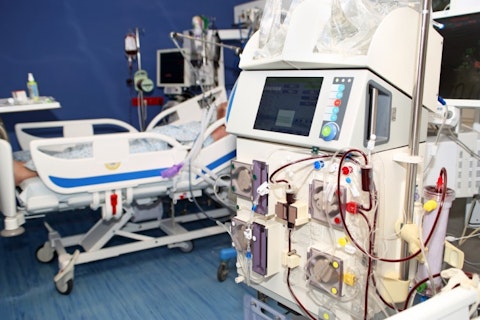
smart.art/Shutterstock.com
1. Equity Office Properties
Year: 2007
Nominal value: $38.90 billion
Value in 2017 dollars: $47.03 billion
Buyer: Blackstone Group
The top spot among the 10 most successful LBOs and private equity buyouts in history goes to Blackstone Group and its acquisition of Equity Office Properties in 2007. The third-largest LBO ever proved to be among the most profitable ones, with Blackstone gradually selling assets over the years and making a tidy profit in the process.

docstockmedia/Shutterstock.com
Follow Blackstone Inc. (NYSE:BX)
Follow Blackstone Inc. (NYSE:BX)
Receive real-time insider trading and news alerts
Disclosure: None


